Lower inventory of livestock in the third quarter of 2024
Four out of seven livestock commodities in Kalinga recorded a decrease of inventory during the third quarter of 2024 compared with the same quarter last year. Swine being the biggest inventory declined by 6 percent. Carabao went down by 0.3 percent, cattle inventory decreased by 2 percent and rabbit by 16 percent. The other three livestock commodities have positive increase like goat with an increase of 30 percent, sheep 49 percent and horse with 19 percent increase during the quarter. Figure 1 shows the livestock inventory by animal type as of October 1, 2023 and as of October 1, 2024.
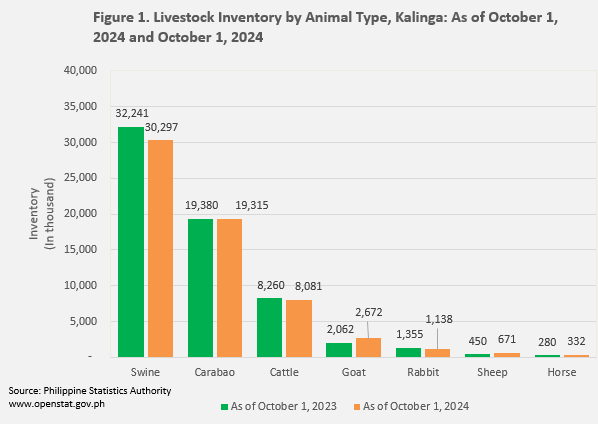
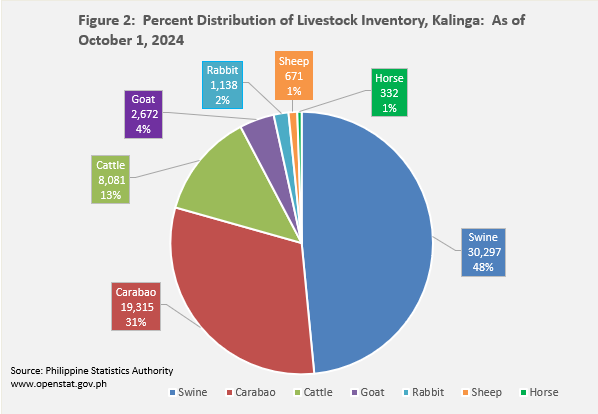
Figure 2 shows the percent distribution of livestock inventory in the province as of October 1, 2024. Swine accounted for the largest portion of inventory comprising 48 percent with a total estimated inventory of 30,297 heads followed by carabao at 31 percent with a total inventory of 19,315 heads followed by cattle at 13 percent share with 8,081 heads. The minor group of livestock animals which is below the 5,000-mark are rabbit with 1,138 heads, Sheep 671 heads and horse with 332 heads.
Highest number of livestock slaughtered in slaughterhouses in the fourth quarter of 2023
Carabao and cattle showed an increase of slaughtering for the third quarter of 2024 compared with the same quarter of last year. Carabao has increased by 5.34% from 131 heads slaughtered in 2023 to 138 heads in 2024 of the same quarter while cattle had has increased by 29.12 percent from 182 heads in 2023 to 235 heads in 2024 also of the same quarter. (Please see figures 3-4).
Carabao has the highest number slaughtered in Quarter 4 2023 with 156 heads but drastically went down in the first quarter of 2024 to 115 heads. Similar with cattle has also the highest number of slaughtered in slaughterhouses in the province in the second quarter of 2024 with 265 heads but also went down beginning third quarter in 2024 to 235 heads.
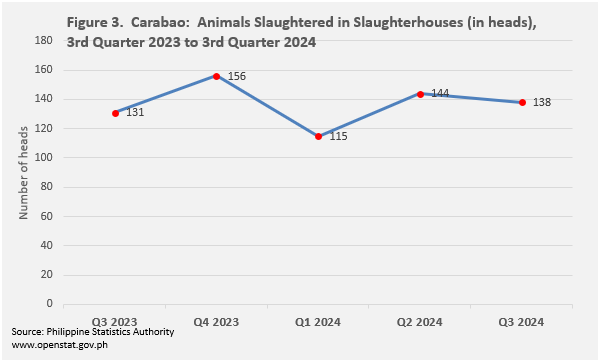
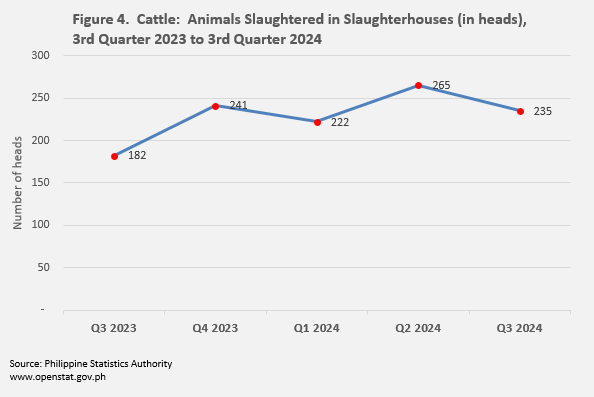
Meanwhile, hog has the highest recorded number of animals slaughtered in the province in the first quarter of 2024 with 3,300 heads but abruptly declined in the second and third quarter of 2024. (See Figure 5)
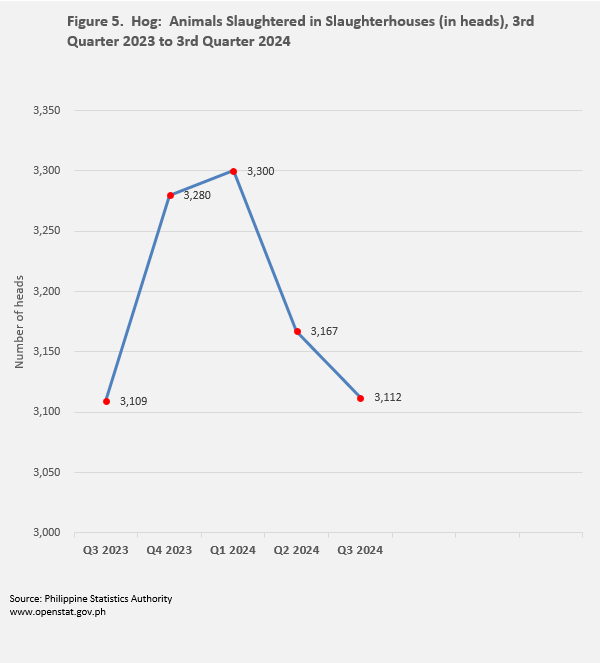
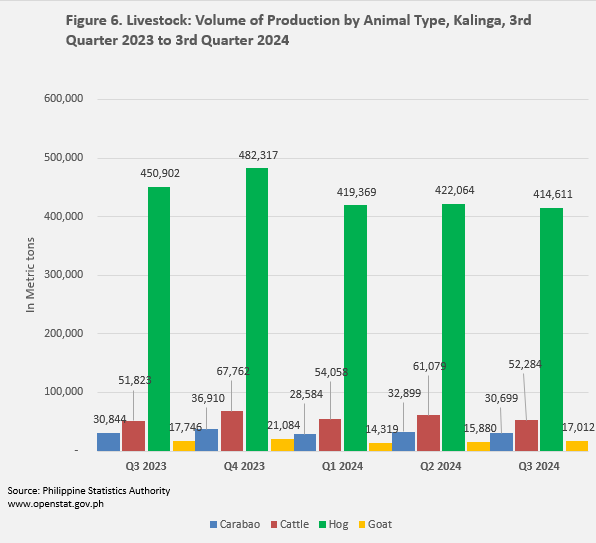
Volume of production for all livestock commodities has declined by 6.7 percent
In the third quarter of 2024 the estimated volume of production for all livestock animals combined was 514,607 metric tons liveweight, this is lower by 6.7 percent compared with the same quarter of last year.
Among the four livestock commodities of the province only cattle had an increase of 0.89 percent while carabao declined by 0.47 percent, hog by 8.05 percent and goat by 4.13 percent as compared to the same quarter of last. During the last 5 quarters, the highest total volume of productions of all livestock in the province was in Quarter 4 of 2023 with 608, 072 metric tons while the lowest volume of productions is seen in quarter 3 2024 with 514,607 metric tons. (Please see Figure 6)
Concepts and Definitions
Data for this Special Release were taken from the two (2) major surveys, namely: 1) Backyard Livestock and Poultry Survey (BLPS) and 2) the Commercial Livestock and Poultry Survey (CLPS), both conducted quarterly by the Philippine Statistics Authority (PSA).
Another source that supplements the data requirements of the Livestock and Poultry sector is the Compilation of Data Slaughterhouses and Poultry Dressing Plants (CDSPDP). This is done monthly and utilizes administrative data from Locally Registered Meat Establishments (LRMEs) in the province which is in coordination with the Provincial Veterinary Office (PVO) and Meat Inspectors (MIs) of the Local Government Unit (LGU).
Livestock
Farm animals kept or raised for consumption and work. For purposes of census and surveys, livestock covers only those that are tended and raised by households and establishments.
Slaughterhouse
The premises that are approved and registered by a controlling authority in which food animals are slaughtered for human consumption.
Volume of Production
The number of tended/raised animals disposed for slaughter including animals shipped-out for slaughter (liveweight equivalent).
Animal Inventory
The actual number of animals (in head) present in the farm as of a specific reference data regardless of ownership.
sgd.
MARIBEL M. DALAYDAY
Chief Statistical Specialist

